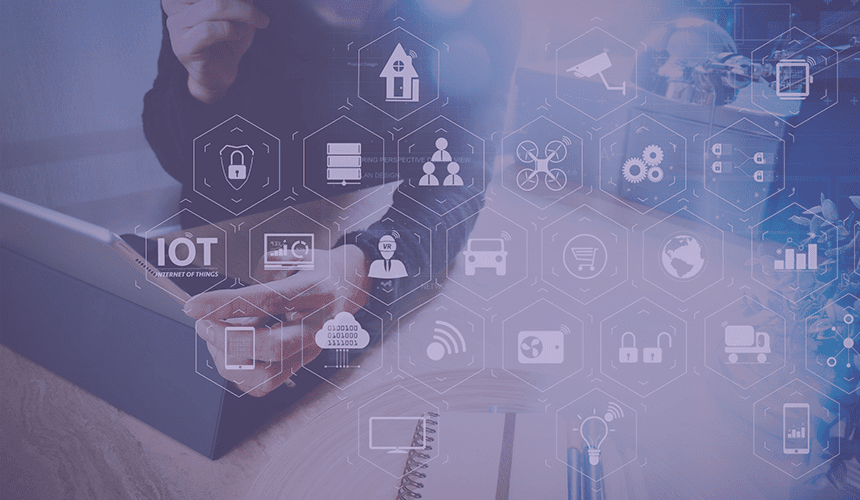The world has experienced some mind-boggling innovations over the last couple of years, and if you think that was exhilarating, wait for what’s in store for 2019. Every industry is gearing up for tech innovations that will substantially disrupt business and make a broader impact on usability.
During the annual Gartner Symposium/ITxpo held in October 2018, experts reiterated that anyone looking to make a leap in digital transformations should focus on building an “intelligent digital mesh.” As we move into the future, digital transformations will no longer be about a technological shift but rather an organizational change that intertwines technology, business, and people, while taking into account numerous possibilities.
1. Connected clouds
Cloud computing has continued to evolve, albeit a few pains in the adoption process. Many organizations are realizing that it may not be the best idea to go completely public or private. You need a mix of two – and that brings the new trend of connected clouds.
Whether you’re looking for cloud-source storage, app development, security, or networking, the connected cloud is a more flexible route to take. Amazon and Alibaba have already answered the call by offering private cloud solutions. Microsoft Azure wasn’t far behind, and HPE acquired Cloud Technology Partners in 2017 to make the connected cloud a reality. Moving into 2019, every organization needs to revamp their IT systems to be seamless, streamlined, and secure through a delicate mix of workloads running on private, public, and hybrid platforms.
2. Widespread adoption of consumer IoT
The hype that IoT will generate an extra $344B in revenue and drive $177B cost reduction by 2020 could be perhaps overrated. However, the internet of things and enhanced reality systems are already driving performance metrics for a number of industries. IoT has penetrated deeper, steering routine management issues and enhancing employee productivity by up to 60 percent.
Emerging smart-home devices will, in 2019, focus on reliability, ease of use, simple maintenance, and simplicity in installation through SDKs. Homeowners will be able to control multiple gadgets at the touch of a tab on their smartphone or smartwatch. For example, your morning alarm system can simultaneously wake you up, turn on your coffee maker, and warm up your car engine.
The reality of smart cities will slowly but surely take shape in 2019. However, an increased number of IoT devices weakens household cyber security, as most products are ill-protected and are highly vulnerable to attacks. To cover all devices at home with a security blanket, a VPN router that encrypts all traffic to and from any WiFi-enabled electronics proves to be highly effective.
3. More usability of chatbots
I know that many users have had frustrating experiences with chatbots throughout 2018. You’ve probably made that important call to your mobile phone provider and the clueless chatbot at the end of the line kept probing you with irrelevant suggestions that didn’t make sense. Yes, chatbots are a new phenomenon that are still under development, but there is hope that 2019 will see more usability of chatbots in a more helpful manner. Massive milestones have been recorded in natural language processing as well as sentiment analytics.
4. Standardization of blockchain technology
Blockchain has been a buzzword thrown around corporate corridors throughout 2018. However, if you ask any layman how it works and what it stands for, you’d be forgiven for thinking it’s a total mess. Now, forget everything you’ve heard about the technology and hear me out. Blockchain technology offers countless possibilities in a myriad of industries; however, it’s still presented in a complicated form that isn’t helpful to many startup businesses and young innovators.
There isn’t a standard way to make use of blockchain technology as every industry looks to develop their own platform to suit their business demands. Think of it this way; if we can build a plug-in-and-play format of the technology that everyone can understand, it won’t take long for this technological miracle-worker to be fully adopted across multiple industries. Leading tech companies like IBM are already laying the foundation for this promising innovation to go beyond cryptocurrency. Transportation, finance, insurance, and more industries are engaging smart developers to realize the full potential of blockchain technology.
5. Crypto trading volume shift to decentralized exchanges
Right now, anyone with a smartphone that can access the internet knows something about cryptocurrencies. Crypto enthusiasts have worked around the clock since 2005 to establish a parallel financial system with better transparency and equity than the traditional fiat currencies. However, centralized exchanges that allow for trading of cryptocurrencies have hampered the primary objective of decentralization. A single point of failure in the system can give hackers and government regulators a loophole to sabotage the developments.
Moving into 2019, the crypto world will see a substantial shift from centralized exchanges to decentralized exchanges that give traders complete control over their funds. Decentralized exchanges promise to bring trust-less and permission-less features of blockchain technology to the trading process, allowing traders to retain possession of their private keys until a match is found and the trade is completed on-chain. Daily trading volumes on decentralized exchanges are still about $3 million, but this is expected to rise drastically in 2019 as the platforms become more intuitive and congenial to use.
There’s no doubt that more tech innovations will continue to shape how we live our lives and run our businesses – across all industries. While the inroads made over the last couple of years may not be clearly visible, 2019 will see more pragmatic revelations on the potential of tech developments in how we live, work, transact, and socialize.
